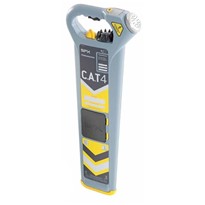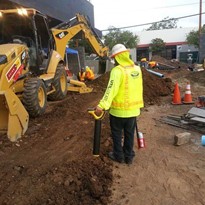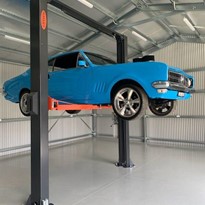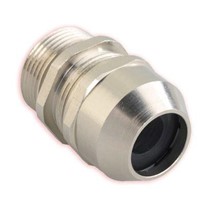is a critical service protecting lives and infrastructure by preventing accidental strikes on underground utilities. But receiving BYDA plans is only the first step. The real challenge is confirming the actual location of services on the ground—and that’s where your cable and pipe locator becomes indispensable.
If you're aiming for DBYD Certified Locator Accreditation (Level A or B) or looking to equip your team with professional gear, this guide covers everything you need to know about selecting the right locator.
Table of Contents
- Why BYDA Accreditation Matters
- What a Cable and Pipe Locator Does
- BYDA and AS5488 Requirements
- Key Locator Features for Accredited Work
- Top Locator Models for BYDA Compliance
- Training, Certification and Best Practices
- Summary: What Makes a Locator BYDA-Ready
- How to Get Started
Why BYDA Accreditation Matters
BYDA accreditation ensures you’re operating at a recognised industry standard for utility location. It’s increasingly required on infrastructure projects, by government contracts, and by major contractors seeking to reduce their risk.
Being accredited demonstrates that:
- You can accurately locate and mark underground utilities
- You understand AS5488 – Subsurface Utility Information (SUI) classification
- You use appropriate, professional-grade locating equipment
- You can safely and effectively manage ground disturbance risks
A certified locator must have the skills AND the right tools.
What a Cable and Pipe Locator Does
A cable and pipe locator helps you trace, identify, and mark the position of underground utilities such as:
- Electrical cables (energised or de-energised)
- Water pipes
- Gas lines
- Sewer pipes
- Telecommunication cables
- Stormwater systems
These locators typically consist of two parts:
- Transmitter (Tx): Injects a signal into a utility or tracer wire
- Receiver (Rx): Picks up the signal and guides the operator to the utility’s location
Modern systems also include:
- Depth estimation
- GPS tracking
- Signal current readings
- Data logging and job reporting
BYDA and AS5488 Requirements
AS5488 is the Australian standard for managing underground utility information. It outlines how data should be collected, verified, and classified into different confidence levels (Quality Levels A–D).
To align with these standards (as required by BYDA), your locator should be capable of:
- Tracing utilities using active and passive methods
- Providing accurate depth and signal current readings
- Have multiple frequencies (minimum three - low, medium, high)
- Have a transponder to locate buried RF markers (such as marker balls)
- Separate peak and null modes
- Recording data and GPS coordinates
- Logging and exporting audit trails for reporting
- Working with sondes and non-conductive pipes
Key Locator Features for Accredited Work
Let’s break down the must-have features for a BYDA-accredited locator:
1. Multiple Frequencies (Low to High)
Different utilities and site conditions call for different frequencies.
Frequency Use Case
- 512 Hz Deep, long-distance metal pipes
- 8 kHz General locating, low distortion
- 33 kHz Poorly grounded or short services
- 65 kHz+ Complex, congested, or shallow networks
2. Active & Passive Locating Modes
Your locator must support both:
- Active Mode: When you can directly apply signal via clip, clamp, or induction
- Passive Mode: Picks up live power, radio, or telecom signals already in the ground
Some also feature Power Filters or Harmonic Distortion Detection for accuracy in tricky environments.
3. Depth Measurement and Signal Current
- Accurate depth estimates are essential for Quality Level A classification.
- Your locator should measure depth within 5–10% accuracy
- Signal strength (measured in mA or dB) helps you confirm you’re tracing the correct service
4. GPS and Data Logging
Required for QA documentation and professional reporting.
Look for locators that include:
- Internal GPS or compatibility with external GNSS
- Automatic logging of location, depth, time, and signal strength
- Exportable files (CSV, KML, GIS formats)
- Optional mobile/cloud integration
5. Sonde Support for Non-Conductive Pipes
A sonde is a battery-powered transmitter that is pushed or flushed into a pipe. Essential for:
- PVC or clay sewer pipes
- Stormwater drains
- Non-metallic services
- Your locator must be able to trace these sonde signals (usually 33kHz or 512Hz).
6. Ergonomic, Rugged, and Site-Ready
BYDA work often means long days in unpredictable conditions.
Your locator should offer:
- Weatherproofing (IP54 or higher)
- Clear daylight-visible screen
- Easy-to-navigate menus
- Long battery life (8+ hours)
- Comfortable weight and balance
Training, Certification, and Best Practices
Having the best locator doesn’t guarantee BYDA accreditation—you also need training and field competence.
What you should look for:
- DBYD Locator Certification (Level A or B)
- Manufacturer-accredited equipment training
- Refresher courses on AS5488 and GPS usage
- Training on software/reporting tools
- TIP: Some suppliers offer advice on training packages with their locators.
Summary: What Makes a Locator BYDA-Ready?
- Active & Passive Locating
- Multiple Frequencies: Required
- Depth Estimation: Required (for QLA)
- Sonde Support: For non-conductive pipes
- Transponder: For RF marker locating
- Separate Peak & Null Modes : For identifying signal distortion
- Rugged Build: Industry standard
- Operator Training Available: Essential for certification
How to Get Started
If you're ready to pursue BYDA accreditation or upgrade your locating gear, here's how to start:
- Get Your Plans from BYDA: www.byda.com.au
- Choose a Locator that fits your needs and work type
- Get Trained on your equipment and complete DBYD certification
- Practice and Document—QA, logging, and reports matter
- Stay Current: Update firmware, review AS5488 updates, and renew certification
Need Help Choosing the Right Locator?
We offer:
- Free consults on DBYD-compliant locators
- Equipment demos & on-site trials
- Certification training packages
- Support, calibration, and reporting tools
- Get in Touch With Our Locator Experts
- Explore BYDA-Ready Locator Systems
- Order your locator from Testrix Systems



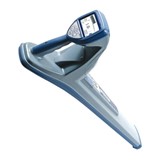
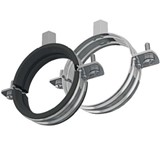
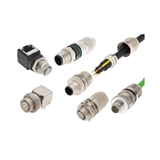
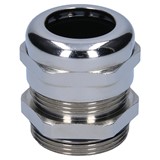
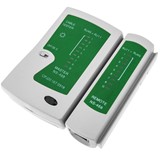
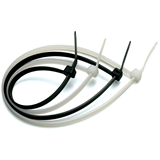

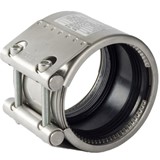
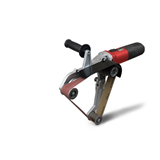
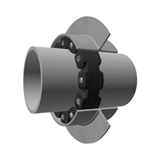

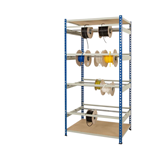


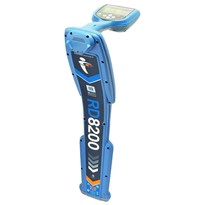



-205x205.jpg)

-205x205.jpg)




